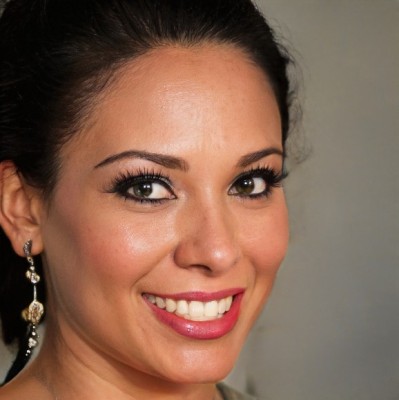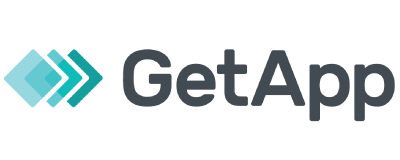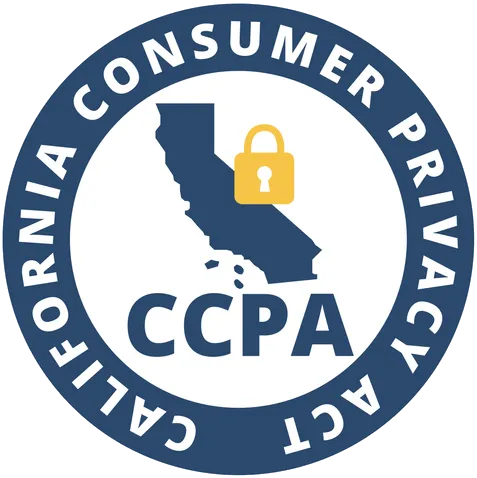The hospitality industry, encompassing hotels, restaurants, cafes, bars, and travel services, is a dynamic sector that thrives on delivering exceptional guest experiences. In 2025, recruitment in this industry is undergoing significant transformation, driven by technological advancements, evolving workforce expectations, and changing consumer demands. This article explores how hospitality recruitment works, the challenges faced in 2025, and strategies to address them, drawing on insights from reputable industry sources.
Challenges in Hospitality Recruitment
- Talent Shortage Persists - Despite increased applications, high turnover and competition for talent continue to challenge staffing efforts.
- Flexibility Demanded - Candidates prioritize flexible schedules and work-life balance, making rigid shift patterns less attractive.
- Skills-Based Hiring - Employers are focusing on transferable soft skills like communication and adaptability over traditional experience.
- Digital Recruitment Essential - The shift to online hiring platforms and AI tools is crucial to streamline processes and meet candidate expectations.
- Diversity & Inclusion Gaps - While DE&I is important to candidates, many employers lack comprehensive policies, affecting talent attraction.
- Sustainability Matters - Candidates are increasingly drawn to employers with strong sustainability practices and values.
- Retention Challenges - With a significant portion of the workforce open to new opportunities, retention through career development and positive culture is vital.
5 Steps to Mastering Hospitality Recruitment
The hospitality industry thrives on exceptional service, and finding the right talent is crucial for success. Here's a strategic approach to elevate your hospitality recruitment efforts:
1. Make Candidate Screening Easier
Efficient candidate screening helps you focus on the best candidates without wasting time.
- Use AI or automation to quickly identify resumes that match your key criteria.
- Incorporate video interviews early to evaluate communication and customer service skills remotely.
- Include skills assessments to verify essential hospitality competencies before in-person interviews.
Action tip: Define clear screening criteria and use technology to filter candidates faster, freeing up time for personal interaction.
2. Enable Flexible Scheduling
Flexibility is a top priority for hospitality workers and can improve retention.
- Track candidate availability during recruitment to match shifts effectively.
- Use dedicated scheduling tools to manage complex shift patterns and last-minute changes.
- Coordinate hiring decisions with workforce scheduling to avoid mismatches.
Action tip: Collect availability upfront and collaborate closely with scheduling managers to ensure new hires fit your operational needs.
3. Build a Compelling Employer Brand
Your reputation and culture attract talent in a competitive market.
- Showcase your work environment, team stories, and employee experiences through social media and career pages.
- Maintain a consistent message across job ads and channels to highlight what makes your workplace unique.
- Encourage current employees to share their positive experiences to reach a wider audience.
Action tip: Use Manatal’s Career page builder to launch a top-tier hospitality employer brand without any coding or design work.
{{cta}}
4. Invest in Training and Development
Offering growth opportunities keeps employees engaged and attracts motivated candidates.
- Provide accessible training programs to improve both hard and soft skills relevant to hospitality.
- Implement mentorship or buddy systems to support onboarding and ongoing development.
- Cross-train staff to build versatility and improve retention.
Action tip: Communicate career pathways clearly during recruitment to appeal to candidates seeking long-term growth.
5. Prioritize Diversity and Inclusion
A diverse team enhances creativity and guest satisfaction.
- Reduce bias by anonymizing resumes or standardizing evaluation criteria.
- Expand your sourcing to include diverse job boards and community groups.
- Train hiring teams on inclusive practices and cultural competence.
Action tip: Make diversity and inclusion visible in your job postings and employer branding to attract a broader talent pool.
6. Enhance the Candidate Experience
A positive recruitment journey increases acceptance rates and employer goodwill.
- Simplify application processes to avoid candidate frustration.
- Keep candidates informed with timely updates at each stage of hiring.
- Use digital tools for offer letters and onboarding paperwork to speed up hiring.
Action tip: Treat candidates with transparency and respect, ensuring every interaction reflects your company values.
How to Choose a Hospitality Recruitment Agency
Finding the right hospitality recruitment agency can significantly impact your hiring success in this competitive industry. Whether you're a hotel, restaurant, resort, or other hospitality business, asking the right questions and evaluating agencies against key criteria will help you make an informed decision.
Understanding Your Needs
Before approaching hospitality recruitment agencies, consider:
- What specific positions are you looking to fill?
- Are you seeking temporary, permanent, or executive placements?
- What is your hiring timeline?
- What is your budget for recruitment services?
Essential Questions to Ask Hospitality Recruitment Agencies
Industry Specialization
- How long have you specialized in hospitality recruitment?
- What percentage of your business is dedicated to hospitality placements?
- Which hospitality sectors do you specialize in (hotels, restaurants, events, etc.)?
Recruitment Process
- How do you source and screen hospitality candidates?
- What pre-employment checks do you conduct?
- How do you verify hospitality-specific skills and experience?
- What is your typical timeline from job posting to placement?
Track Record and Success
- What is your fill rate for hospitality positions?
- What is your candidate retention rate after placement?
- Can you provide case studies or examples of successful hospitality placements?
- Do you have testimonials from other hospitality businesses?
Fees and Terms
- What is your fee structure for different types of hospitality roles?
- Do you offer any guarantees if placements don't work out?
- Are there any additional costs beyond the standard placement fee?
- Do you offer flexible pricing options for multiple hires?
Key Criteria for Evaluation
Industry Expertise
Look for agencies with genuine hospitality sector knowledge, understanding of specific roles (from housekeeping to executive chef to general manager), and familiarity with industry trends and challenges.
Candidate Pool Quality
Evaluate the depth and breadth of their hospitality talent network. Do they have access to both active job seekers and passive candidates? Can they reach specialized talent with unique hospitality skills?
Screening Process
Assess how thoroughly they vet candidates for:
- Technical hospitality skills and certifications
- Service orientation and a guest-focused mindset
- Cultural fit with your organization
- Availability for hospitality is often non-standard working hours
Technology and Innovation
Consider their use of recruitment technology for hospitality-specific needs:
- Applicant tracking systems tailored to hospitality roles
- Skills assessment tools for hospitality competencies
- Video interviewing capabilities for remote candidates
Customer Service Approach
Evaluate their responsiveness, communication style, and understanding of urgency in hospitality staffing needs.
Geographic Reach
Determine if they have the appropriate regional, national, or international reach to meet your hospitality recruitment needs.
Making Your Final Decision
After gathering information and evaluating hospitality recruitment agencies against these criteria:
- Request references from similar hospitality businesses
- Consider starting with a trial position before making a long-term commitment
- Ensure contract terms align with your hospitality business needs
- Establish clear communication protocols and performance expectations
Conclusion
Hospitality recruitment in 2025 is a complex but exciting landscape, shaped by technology, workforce diversity, and guest expectations. By leveraging AI, prioritizing soft skills, and addressing challenges like turnover and generational differences, businesses can build resilient, talented teams. The industry’s commitment to flexibility, inclusivity, and well-being will be key to attracting and retaining top talent, ensuring exceptional guest experiences in a competitive market.
Frequently Asked Questions
Q: How do hospitality recruitment agencies find candidates?
A: Hospitality recruitment agencies source candidates from various avenues. These include industry networks, specialized job boards, social media, hospitality schools, career fairs, and pre-screened professional databases. They also leverage referrals from past placements and maintain relationships with industry professionals who may not be actively job searching but are open to new opportunities.
Q: What types of positions do hospitality recruiting agencies typically fill?
A: Hospitality recruiting agencies typically fill a wide range of positions including executive roles (General Managers, Directors of Operations), department heads (F&B Directors, Executive Chefs, Rooms Division Managers), specialized positions (Sommeliers, Revenue Managers), front-of-house staff (Servers, Bartenders, Front Desk Agents), back-of-house personnel (Line Cooks, Housekeeping Staff), and corporate hospitality roles (Regional Managers, Corporate Trainers).
Q: How long does the recruitment process usually take?
A: The recruitment process usually takes between 2-6 weeks, depending on the position level and specific requirements. Entry-level positions might be filled within 1-2 weeks, while executive searches can take 4-8 weeks or longer. Factors affecting the timeline include position complexity, market conditions, geographic location, and how quickly clients provide feedback on candidates.
Q: What should I expect in terms of fees and contracts?
A: In terms of fees and contracts, most hospitality recruiting agencies work on a contingency basis, charging 15-25% of the candidate's first-year salary, paid only when a successful placement is made. Executive search firms may request a retainer fee upfront. Contracts typically include replacement guarantees ranging from 30-90 days, detailed fee structures, and expectations for both parties regarding communication and timelines.
Q: Can hospitality recruiting agencies help with temporary staffing needs?
A: Yes, hospitality recruiting agencies can help with temporary staffing needs. Many agencies offer flexible staffing solutions, including temporary workers for seasonal demands, event staffing, interim management during transitions, and temp-to-perm arrangements. Some specialize exclusively in temporary placements, while others offer this as part of their full-service recruiting portfolio to help properties manage fluctuating staffing requirements throughout the year.
Citations:
[1] Hospitality Insights by EHL
[3] psico-smart.com





.png)






















.webp)

.webp)

.webp)
